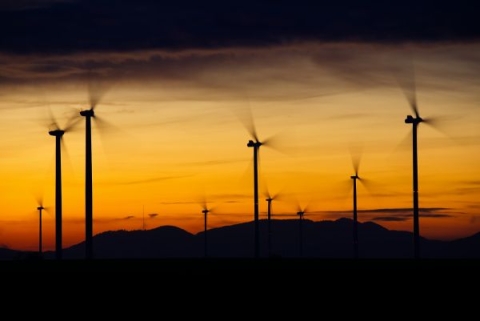

The new study analysed hybrid renewable energy systems, which generate power from two or more renewable sources
9 November 2021
4 min read
Scientists from the University of Portsmouth have found the best combination of renewable power to provide uninterrupted and reliable energy with a cost saving of 25 per cent.
A major barrier to renewable energy is it doesn’t provide a constant supply of energy. This new study analysed hybrid renewable energy systems, which generate power from two or more renewable sources so there is a more stable supply.
The experts tested four combinations of renewable energy, as well as integrating conventional photovoltaic solar panels with phase change material – which can store thermal energy – to enhance power.
Dr Sourav Khanna, from the University of Portsmouth’s School of Energy and Electronic Engineering, is corresponding author of the paper.
He said: “Wind and solar farms only produce energy when the wind is blowing or the sun is shining, which means there are abrupt changes in power production. As these forms of energy aren’t reliable alone, we have to club them together.
“By combining them, we can increase reliability and find the most efficient and cost-effective blend of renewable sources.”
The experts found that integrating thermal storage material with photovoltaic panels, wind, biogas and battery power was the best combination of renewable power and resulted in cost savings of up to 25 per cent.
The novel thing about this research is we’ve investigated how to store this heat in phase change material, which means the 80 per cent which would usually be wasted is loaded into thermal energy storage.
Dr Sourav Khanna, Lecturer in Renewable Energy and Thermal Engineering
Dr Khanna said: "The conventional solar photovoltaic panels can convert only 20 per cent of solar energy to electricity. The other 80 per cent is wasted and becomes heat. The novel thing about this research is we’ve investigated how to store this heat in phase change material, which means the 80 per cent which would usually be wasted is loaded into thermal energy storage. This thermal energy can be converted into space and water heating – which is usually the biggest energy consumption of a household."
Phase change material – a substance that absorbs or releases heat – is an effective way to store thermal energy. It provides maximum energy performance and is environmentally friendly.
The combinations of renewable energy were tested in Chennai, India, a hot and humid climate, but Dr Khanna believes that testing how to optimise power and save money should be rolled out to other locations in order to work towards net zero.
He said: “We’ve conducted this research in an area where there is no electricity grid, so our future research needs to investigate how it can be translated to areas with one.”
The paper is published in Energies.
